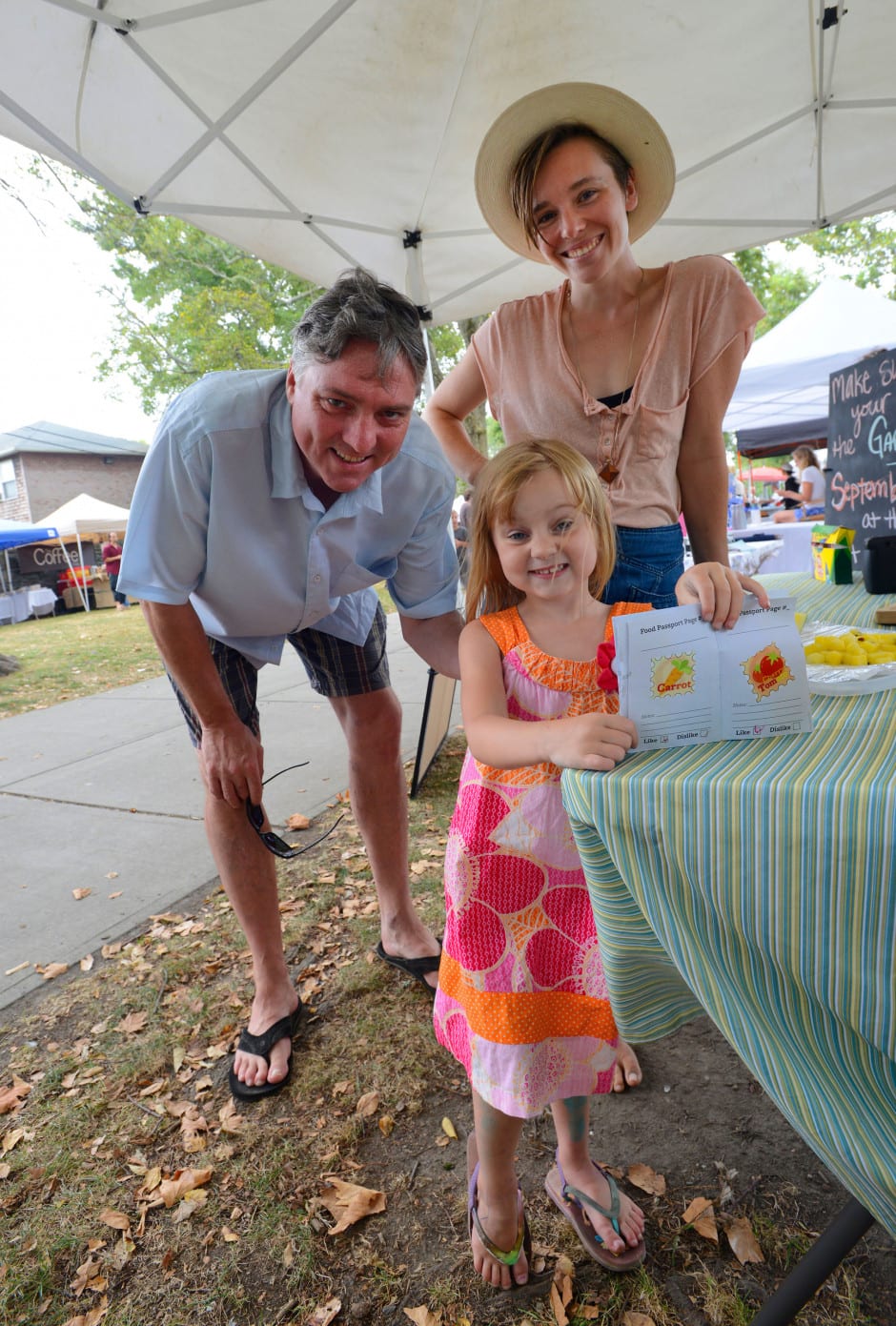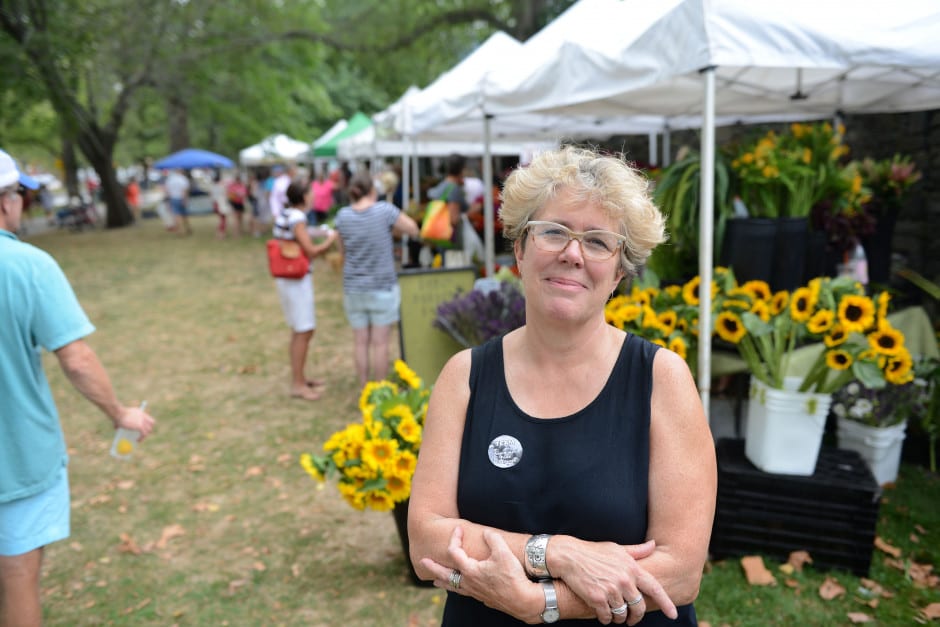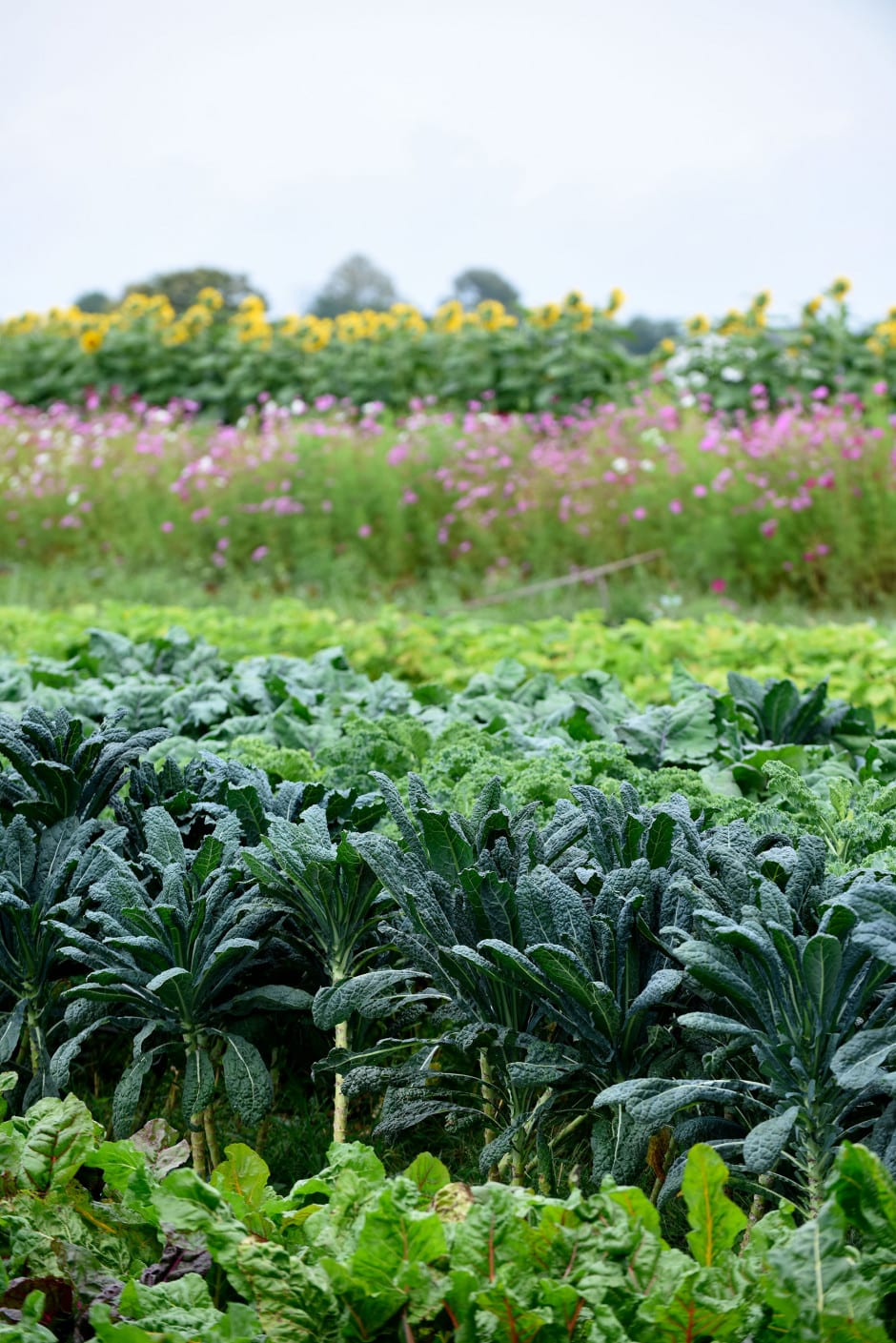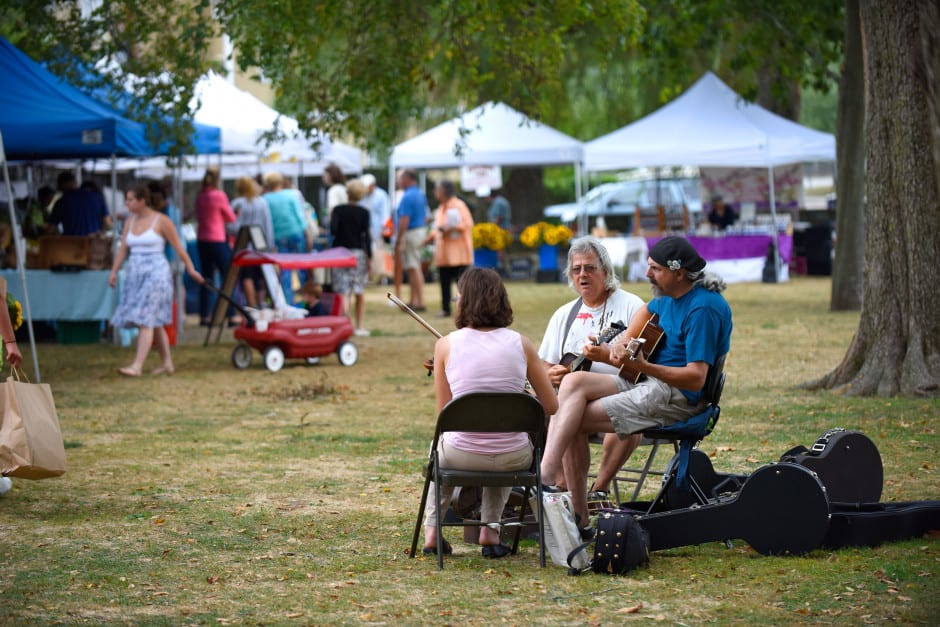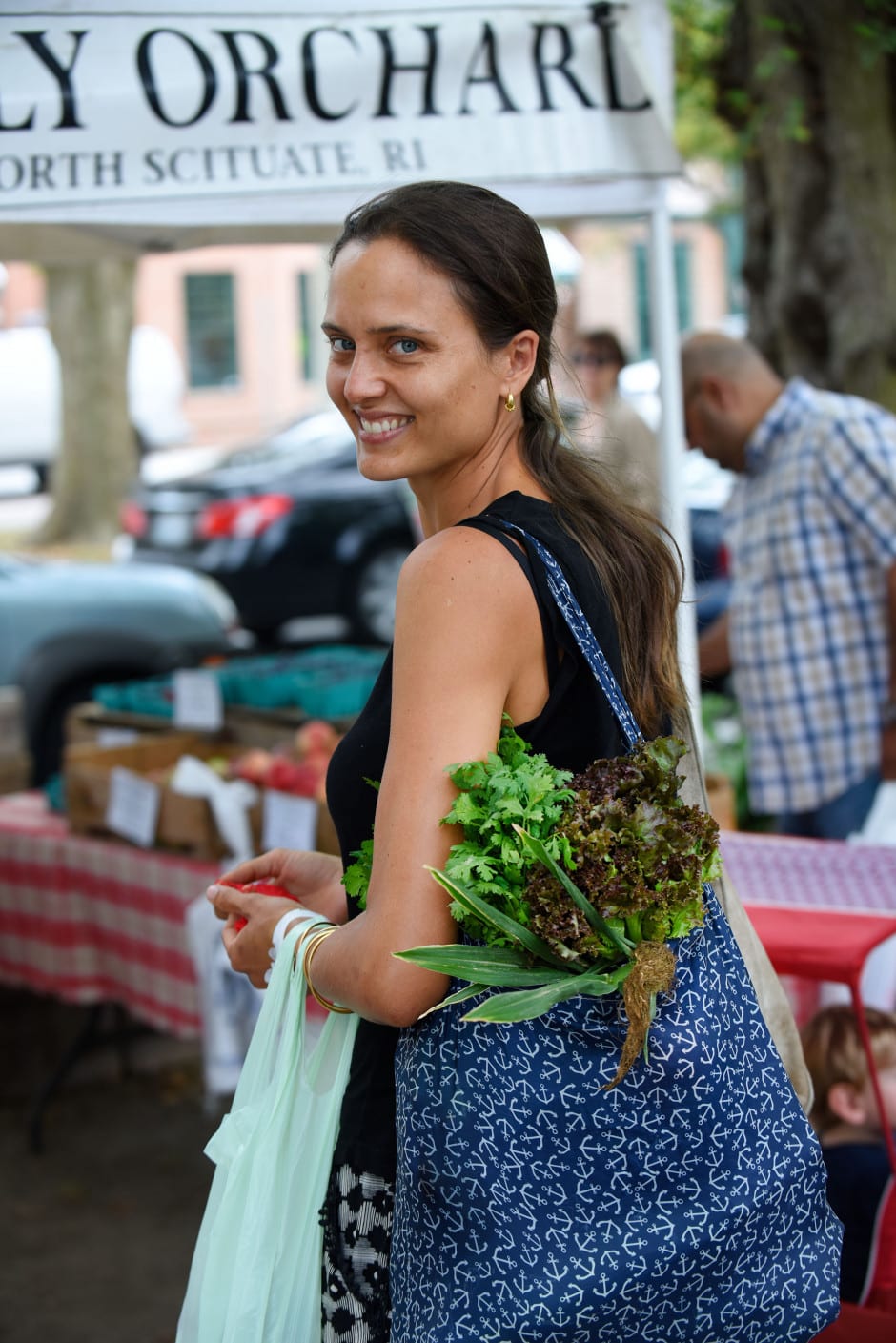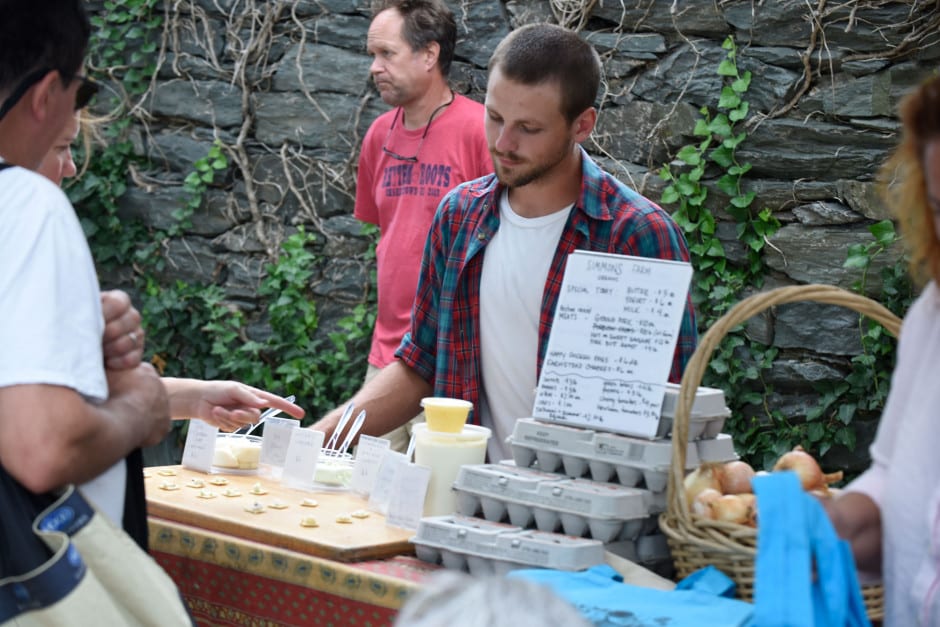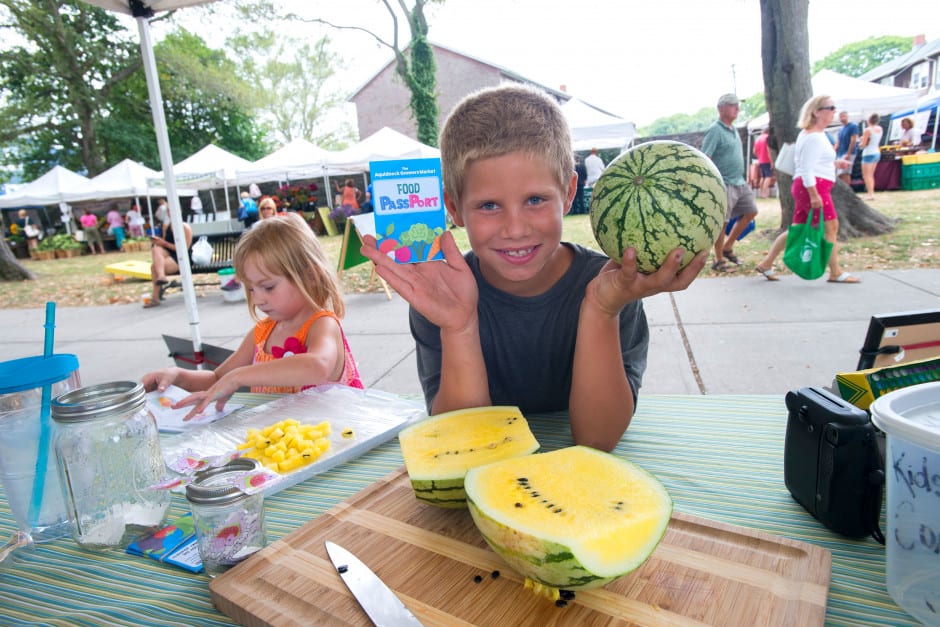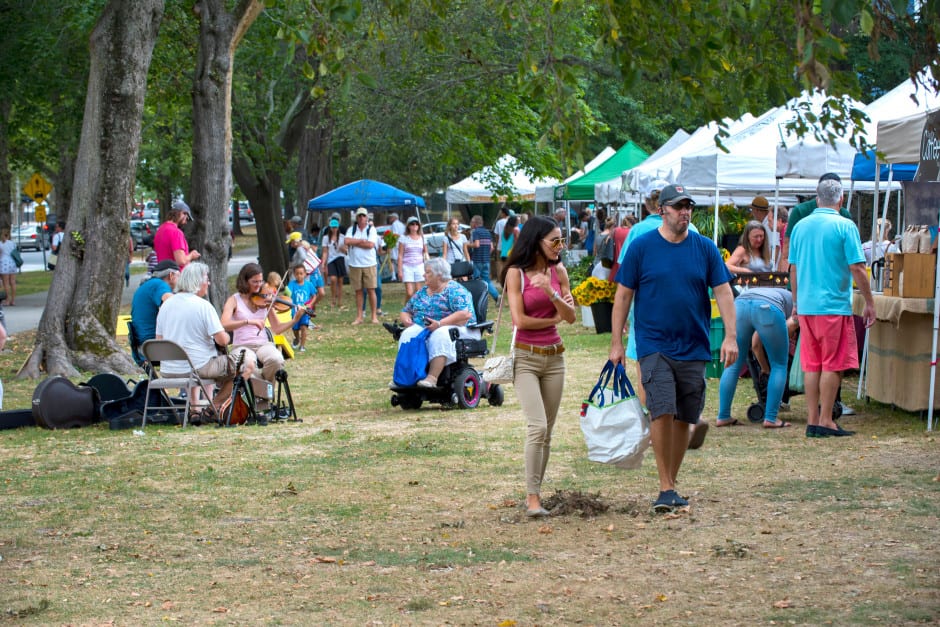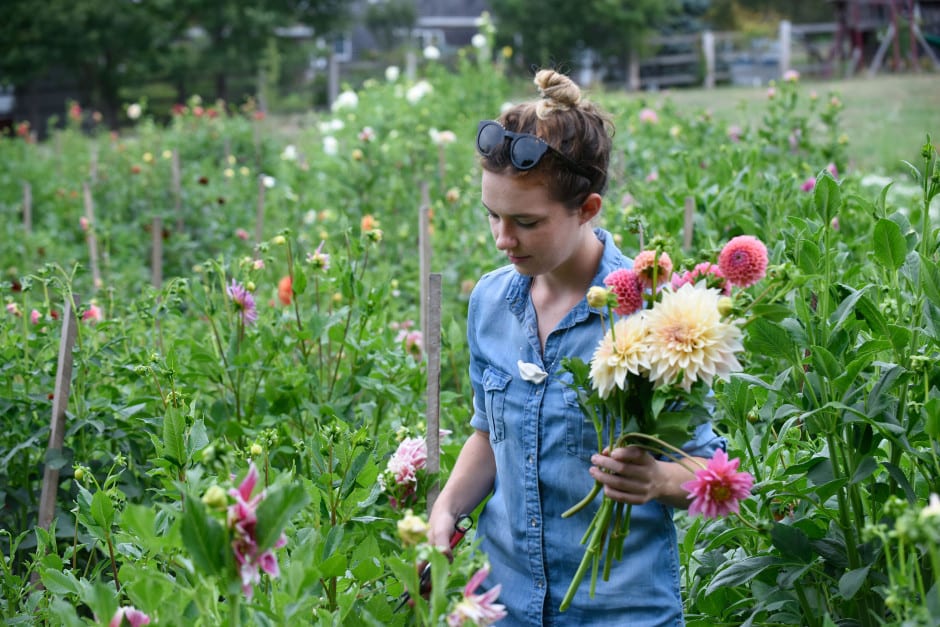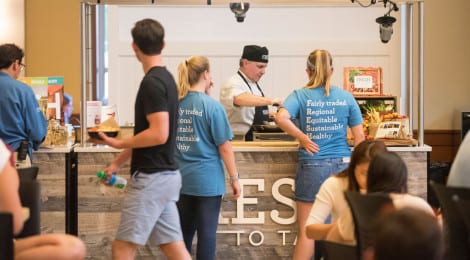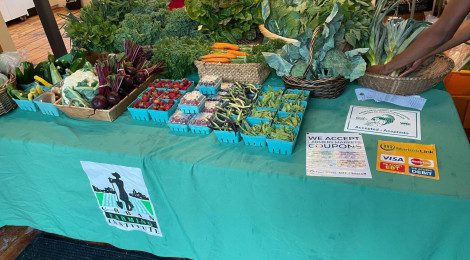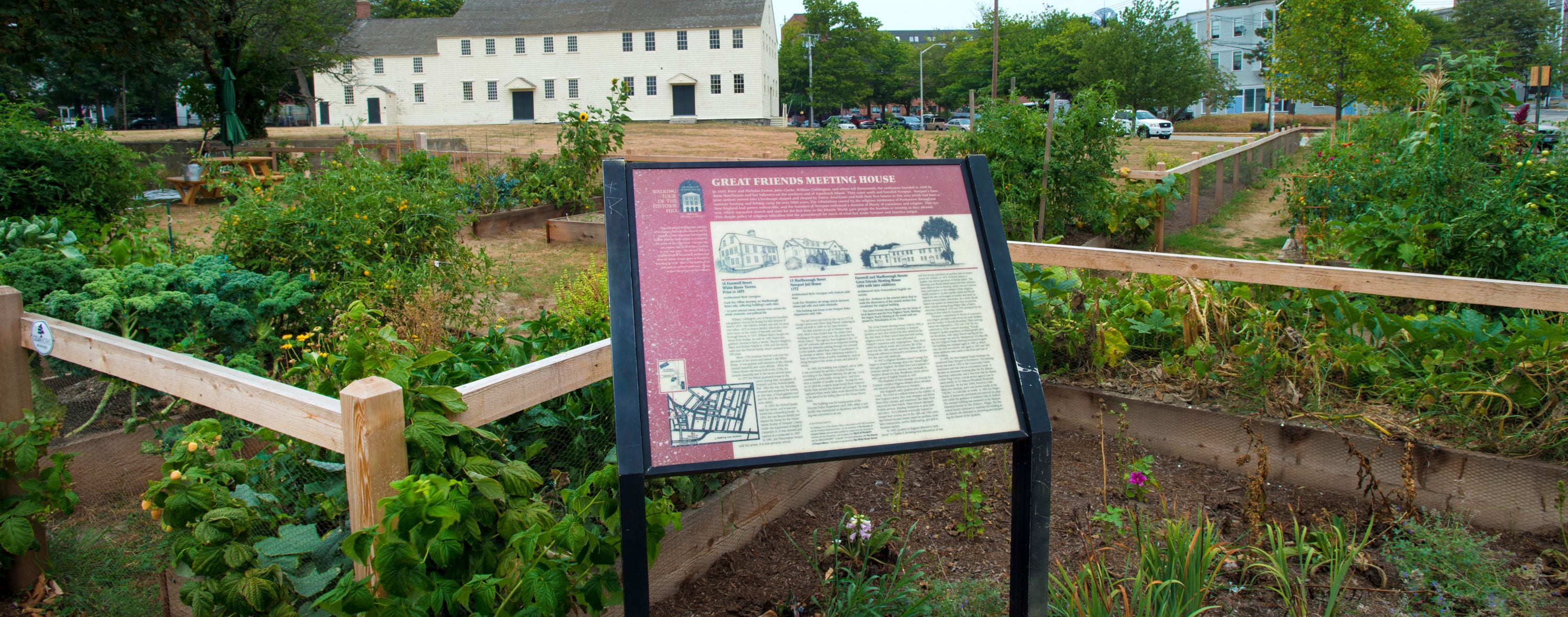
Grantee Profile
Sustainable Food For Aquidneck Island
Aquidneck Island lies in the middle of Narragansett Bay in the state of Rhode Island. Connected to the mainland by three bridges, the island has a population of around 60,000 – almost half of which live in the well-known city of Newport. Every summer, this population swells, with nearly 3.5 million people visiting Newport alone. While the island has a prosperous seasonal tourism industry, visitors might be surprised to learn that Aquidneck faces a very serious threat to food security.
The north end of Newport, separated from the rest of the city by a highway, is a visible reminder of the drastic wealth disparity on the island. Many of its residents live in subsidized housing, with little access to locally-grown, fresh, and healthy food at an affordable price. Providing equitable, locally-produced food isn’t the island’s only challenge, however. In the face of climate change, Aquidneck Island desperately needs greater resiliency and food production capacity. To illustrate the severity of the problem: if the island’s three bridges were damaged and impassable due to a storm, Aquidneck would only have enough food on the shelves to last three days.
It is precisely this “broken food system” that the Aquidneck Community Table (ACT) is working to fix. The modern, industrialized food system doesn’t necessarily work for many of the people it claims to serve. Says Bevan Linsley, ACT project director: “The pre-existing food system just evolved; we have to now understand all of the parts of the system and put them back together in a way that makes sense.”
A year ago, three separate organizations – Island Commons Food Initiative, Aquidneck Growers Market, and Sustainable Aquidneck – were each working to address the food system challenges that the island faces. These organizations recognized that any successes that they could achieve on their own would be even greater if they combined their efforts and resources, and set out to form Aquidneck Community Table in early 2016. ACT was met with an overwhelmingly enthusiastic response from the community, and has already implemented several successful programs on the island.
Community Gardens
Community gardens are an important piece of the puzzle when it comes to increasing community engagement around local food for residents of Aquidneck. Residents showed overwhelming support for the Newport Community Garden, for which more than 30 people applied for 20 available garden beds. The garden lies directly in the center of Newport, on the lawn in front of the Great Friends Meeting House. It contains 24 total beds, was built with the help of over 80 volunteers from the community, and continues to be a space where every island resident has the opportunity to own a piece of real estate in Newport.
The Florence Gray Community Garden, rehabbed by ACT in the spring of 2016, is tended by 8 individuals who primarily grow food to feed their families, and lies directly in the middle of one of Newport’s subsidized housing developments. The Community College of Rhode Island’s campus is only a short walk from the garden, as is Rhode Island Head Start, where a pop-up farmers market is held once a month.
Food Challenge
Programs such as the Aquidneck Food Challenge, which took place from September 1-10 2016, encouraged residents to think about where their food comes from, and helped spark community discussions about the state of local food in Rhode Island. The 10-day challenge encouraged participants to ‘up the ante’ on how they had been eating – whether that meant eating all local food for the challenge period, or just adding in a couple of local products here and there. Some participants took it as an opportunity to get creative; they hauled ocean water home and cooked it down to make their own salt for the week. Aquidneck Community Table sees the challenge, which they plan to make an annual event, as a way for residents to learn what kinds of food the island is currently producing, and to become more aware of how much of their food comes from other places.
Engaging Kids at the Growers’ Market
At the Aquidneck Growers’ Market in Newport, a program called the Kids Corner works to engage the next generation of consumers. Children receive a passport booklet at the beginning of the market season, and each week they can collect stickers in it by trying produce from vendors around the market. This provides an opportunity for kids to be exposed to a wide variety of foods like mushrooms and yellow watermelon, and starts to teach them about the diversity and bounty of the produce available at the market. Parents and other shoppers can also get involved in the food cycle: all food scraps that people bring back to the farmers’ market are turned into compost at the Island Community Farm, which in turn feeds the very vegetables they buy.
The island’s increasing focus on food as a pathway to economic, community, and environmental health has been an important shift in the conversation, says Linsley. Creating connections is at the core of ACT’s work; it’s a key step in engaging and communicating with pockets of the community that might typically exist in silos. Regional influences like Food Solutions New England’s 50 by 60 vision and the increasing focus within the state of Rhode Island have also helped provide direction for activities on Aquidneck. Early support and grants from the Kendall Foundation have allowed Aquidneck Community Table to continue to build strong, island-wide action around a new understanding of healthy food access for all, sustainable agricultural practices, and community health.
Looking forward, Linsley sees ACT as a convener of a wider community discussion to create a sustainable food plan for the island. In the last year alone, ACT created the Aquidneck Island Food Map – an online, interactive map which shows the locations of farmers’ markets, farms, community gardens, food pantries, meal delivery services, and more. It’s part of ACT’s larger effort to be inclusive and to create connections and opportunities for locals who are making a difference in the community, like Little State Flower Co., Island Community Farms, and the school garden at Thompson Middle School. Creating these connections not only strengthens food security on the island, but also helps make Aquidneck Island a more resilient and empowered community overall.
Learn more: Aquidneck Community Table
The pre-existing food system just evolved; we have to now understand all of the parts of the system and put them back together in a way that makes sense.
